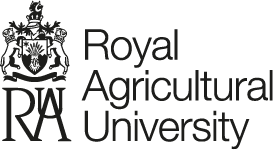Targeted conservation grazing using molasses to increase preferential consumption of old growth pasture grasses
Grange, Ian (2016) Targeted conservation grazing using molasses to increase preferential consumption of old growth pasture grasses. Conservation Evidence journal, 13. pp. 82-87. ISSN online
|
Text
Grange grazing molasses.pdf Download (543kB) | Preview |
Abstract
High conservation value grasslands, which are usually marginal and agriculturally poor, are often difficult to manage appropriately for biodiversity enhancement. A key management tool for this is conservation grazing, by which grazing intensity, timing and duration can be altered to suppress certain plant species, such as the more dominant grasses without impacting on other less competitive herbaceous ones. It has been suggested that the application of molasses to plant leaves could effectively encourage livestock to consume old and rank pasture grasses. This study assessed whether such an approach could be adapted to UK conservation grasslands, by using molasses to target grazing towards problem areas of dominant grass species. When Dexter cattle were exposed to areas of upright brome Bromopsis erecta and wood false-brome Brachypodium sylvaticum that had received a single application of molasses in the autumn period, no preference was shown for the treated plants. In the late winter period, however, cattle showed a significant preference for upright brome plants that had received two applications of molasses. Therefore, if consideration is given to the timing and frequency of molasses applied to target vegetation, it can be used as a conservation grazing management tool for some less palatable grasses.
| Item Type: | Article |
|---|---|
| Keywords: | conservation grazing grassland management |
| Divisions: | Agriculture, Food and Environment |
| Depositing User: | Prof Meriel Moore-Colyer |
| Date Deposited: | 16 Feb 2017 14:23 |
| Last Modified: | 19 Oct 2022 15:41 |
| URI: | https://rau.repository.guildhe.ac.uk/id/eprint/14514 |
Actions (login required)
 |
Edit Item |

